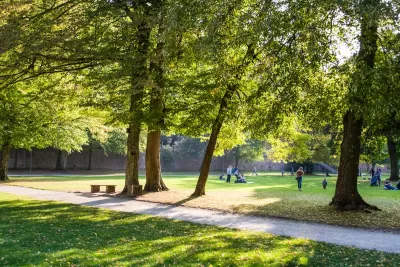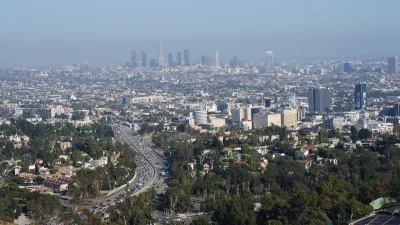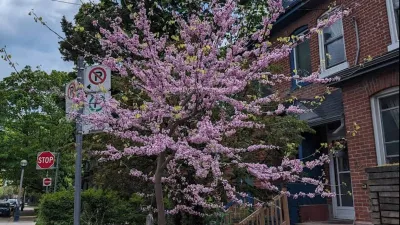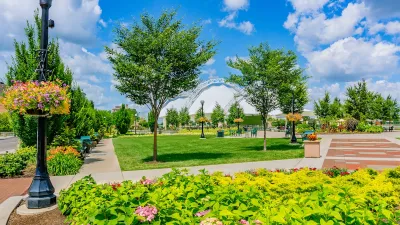Louisville's Green Heart project demonstrates that strategically planting trees in underserved neighborhoods can significantly reduce inflammation levels, highlighting the health benefits of urban greenery through a novel, data-driven approach.

In response to rising urban temperatures and air pollution, Louisville, Kentucky, has implemented several green initiatives, including a $12.6 million federal grant to expand tree cover in underserved neighborhoods. A significant part of this effort is the Green Heart Louisville project, a groundbreaking urban forestry study that monitored the health effects of planting 8,000 trees and shrubs in specific neighborhoods. The study found that residents in areas with new greenery had significantly lower levels of inflammation, a key factor in heart disease, cancer, and diabetes.
As reported by Linda Baker, the Green Heart Louisville project is notable for its scientific rigor, using a clinical trial design to study the health impacts of urban trees. The researchers focused on planting mature trees in areas with the highest air pollution levels, and their findings underscore the tangible health benefits of urban greenery. Led by the University of Louisville and the Nature Conservancy, this study marks the first large-scale effort to directly connect tree planting with public health data, revealing how thoughtful urban design can improve residents' well-being.
Looking forward, the study’s success may serve as a model for cities across the country facing similar challenges. With its focus on scientifically driven interventions, the project highlights the potential of trees as essential infrastructure for cooling and pollution mitigation, particularly in low-income areas. Louisville's leadership in this area could inspire other cities to prioritize urban greening as a tool for improving public health and addressing climate change.
FULL STORY: A City Finds Success Using 'Trees as Medicine'

Alabama: Trump Terminates Settlements for Black Communities Harmed By Raw Sewage
Trump deemed the landmark civil rights agreement “illegal DEI and environmental justice policy.”

Planetizen Federal Action Tracker
A weekly monitor of how Trump’s orders and actions are impacting planners and planning in America.

The 120 Year Old Tiny Home Villages That Sheltered San Francisco’s Earthquake Refugees
More than a century ago, San Francisco mobilized to house thousands of residents displaced by the 1906 earthquake. Could their strategy offer a model for the present?

Ken Jennings Launches Transit Web Series
The Jeopardy champ wants you to ride public transit.

BLM To Rescind Public Lands Rule
The change will downgrade conservation, once again putting federal land at risk for mining and other extractive uses.

Indy Neighborhood Group Builds Temporary Multi-Use Path
Community members, aided in part by funding from the city, repurposed a vehicle lane to create a protected bike and pedestrian path for the summer season.
Urban Design for Planners 1: Software Tools
This six-course series explores essential urban design concepts using open source software and equips planners with the tools they need to participate fully in the urban design process.
Planning for Universal Design
Learn the tools for implementing Universal Design in planning regulations.
Clanton & Associates, Inc.
Jessamine County Fiscal Court
Institute for Housing and Urban Development Studies (IHS)
City of Grandview
Harvard GSD Executive Education
Toledo-Lucas County Plan Commissions
Salt Lake City
NYU Wagner Graduate School of Public Service





























